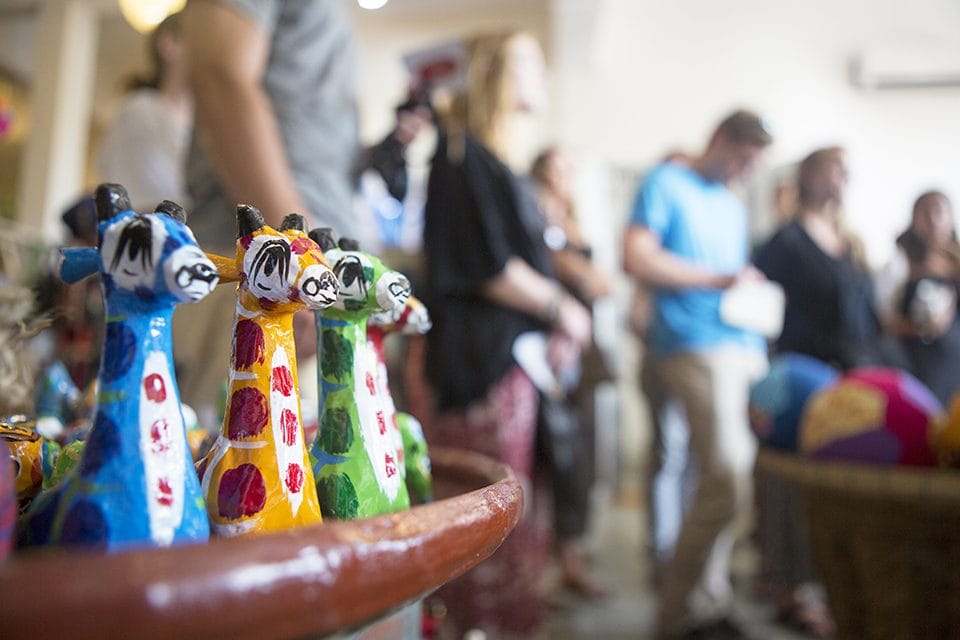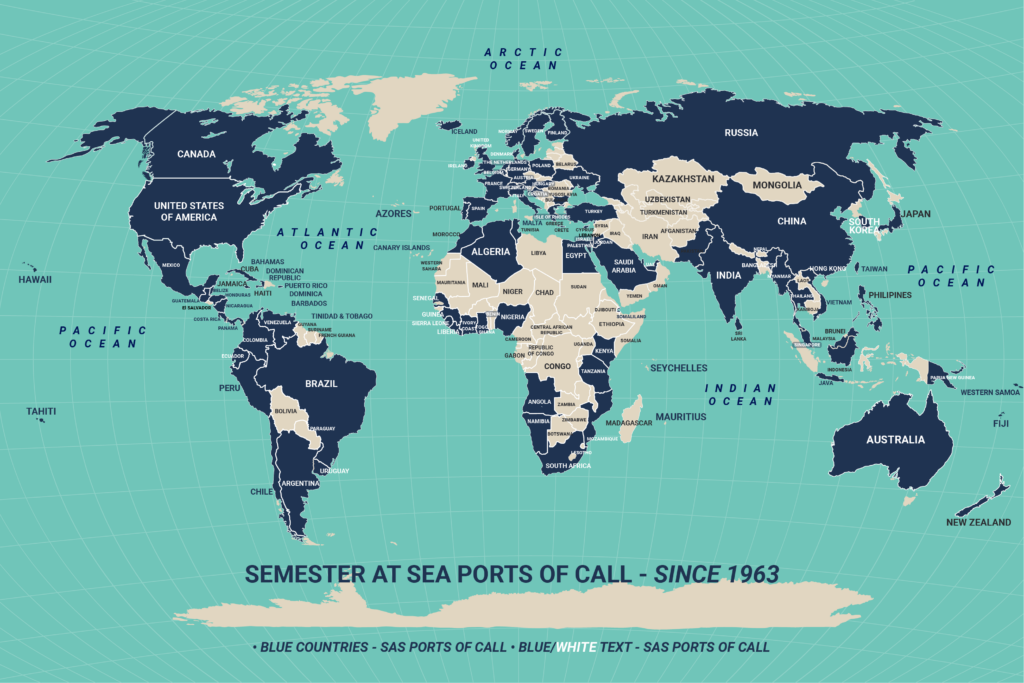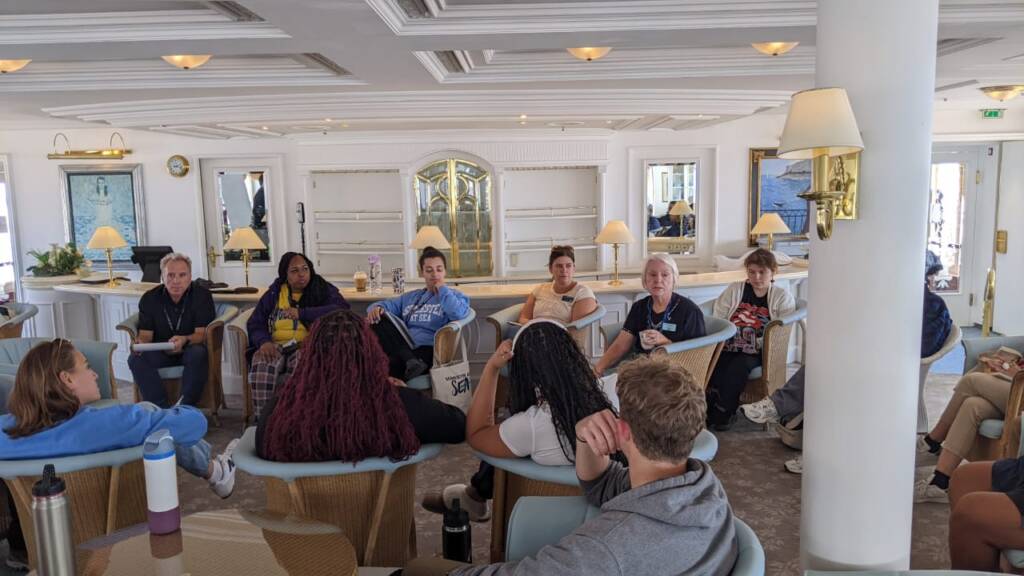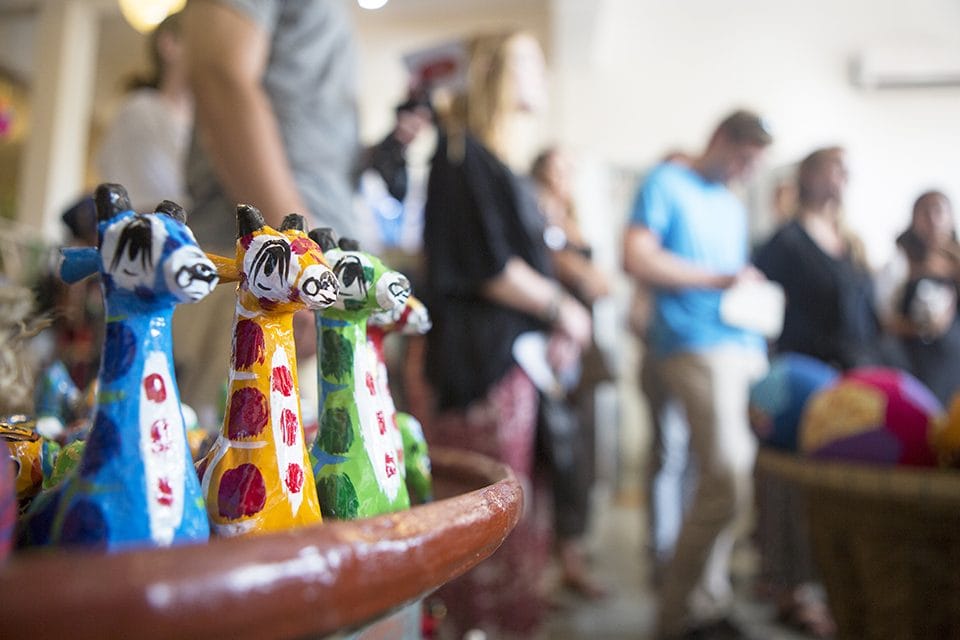
For its target customer, Pomelo isn’t an easy store to find.
The retail store sits on the second floor of a building overlooking a busy street in downtown Rangoon (Yangon), Burma (Myanmar). Thein Pyu Road is loud and rushed, with an endless stream of traffic. If you’re arriving by cab or bus, you should be ready to jump over white puddles lining a dusty gutter to get to a crowded sidewalk. Street vendors sell sodas and water, and on a hot day, of which there are plenty in Burma, the drinks might catch your attention far quicker than the staircase leading up to Pomelo.
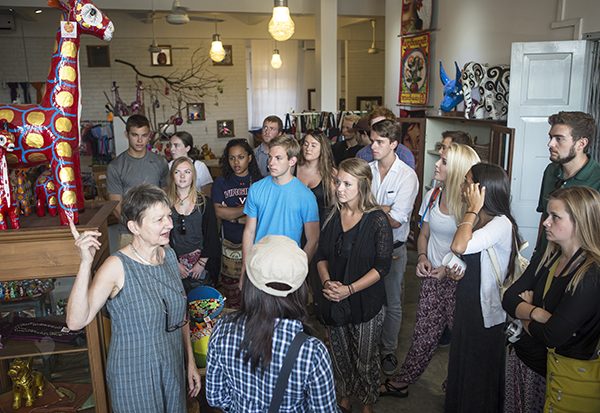
In short, it’s the kind of store that you could find if you knew where to look, but probably doesn’t get a lot of walk-in customers.
So how has it been featured in travel guides for the New York Times, Trip Advisor, and the Lonely Planet? And how has Pomelo been successful enough to plan opening another store in Rangoon’s airport, when their original store is halfway around the globe from the American and European market it sells to, without any direct shipping outside of the country?
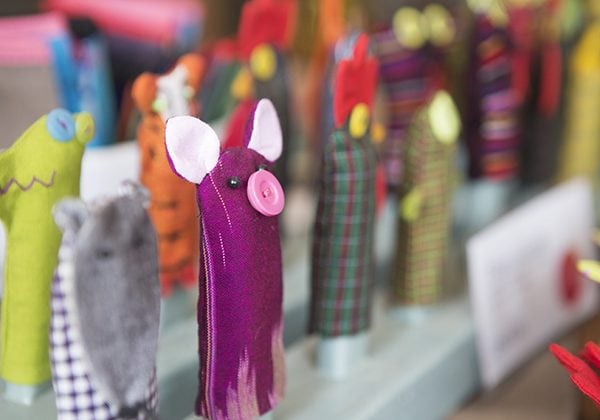
These were a few of the questions running through the minds of twenty-something Semester at Sea students as we crowded around Ulla Kroeber, the store’s visionary who had agreed to meet with our Personal Finance class to discuss poverty alleviation in Burma. And they were answered almost as soon as she started talking.
While we gazed around at products ranging from brilliantly colorful papier-mâché giraffes the size of golden retrievers; to cloth wraps designed to transform an ordinary balloon into a unique decoration, Ulla told us the personal stories of the women who designed them.
A group called Action for People (AFP) makes the balloon decorations, along with other soft toys for Pomelo. Ulla says the group, made up of eight widows living with HIV and struggling to support their families, has seen improvement in skills and morale since joining Pomelo.
“Together we are strong,” Ulla said. “When people see the products here, they know the story. There’s a sympathy factor.”
Natalie Ortiz, Pomelo’s general manager, introduces herself halfway through the presentation. Ulla tells us that sewers are more creative and proud after they visit the store and see their work on display. In many cases, sewers have been inspired by the variety of products in the store: they can take inspiration for new creativity from other artists’ work.
“It takes success to be creative,” Ulla said. “You’re not creative out of the blue.”
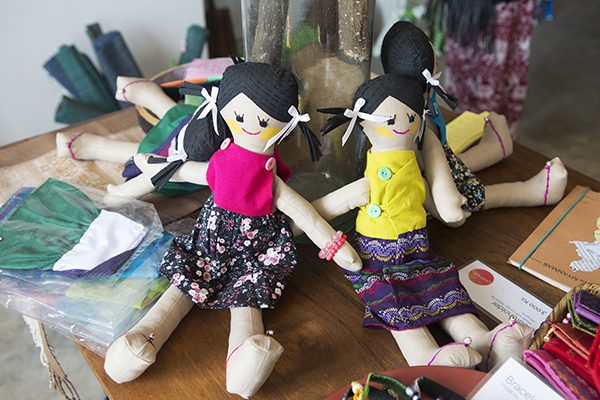 “But everyone can be,” Natalie adds quickly.
“But everyone can be,” Natalie adds quickly.
Ulla and Natalie tell us the store only sells products made in Burma, by Burma’s people, from Burma’s raw materials. For some sellers, the store returns to them as much as 80% of the final cost of the product, which can be enough to entirely support the sewers’ cost of living.
The two women are clearly proud of their work: they’re smiling and enthusiastic to answer follow up questions from a few of our peers and Professor Kolbe, after most of the class breaks off from the presentation to peruse the shelves and display tables.
Ulla explains the business’s next steps. Shipping costs make selling the goods abroad prohibitively expensive, at least under the current system. Instead, the store relies on exporting its goods through tourists’ backpacks. And on this day, the strategy seems to work: lines of students buy gifts for family members back home, bringing tapestries to help them tell the story of their time in Burma.
For more information, please visit: www.pomeloyangon.com
Photos by Evan Meyer
